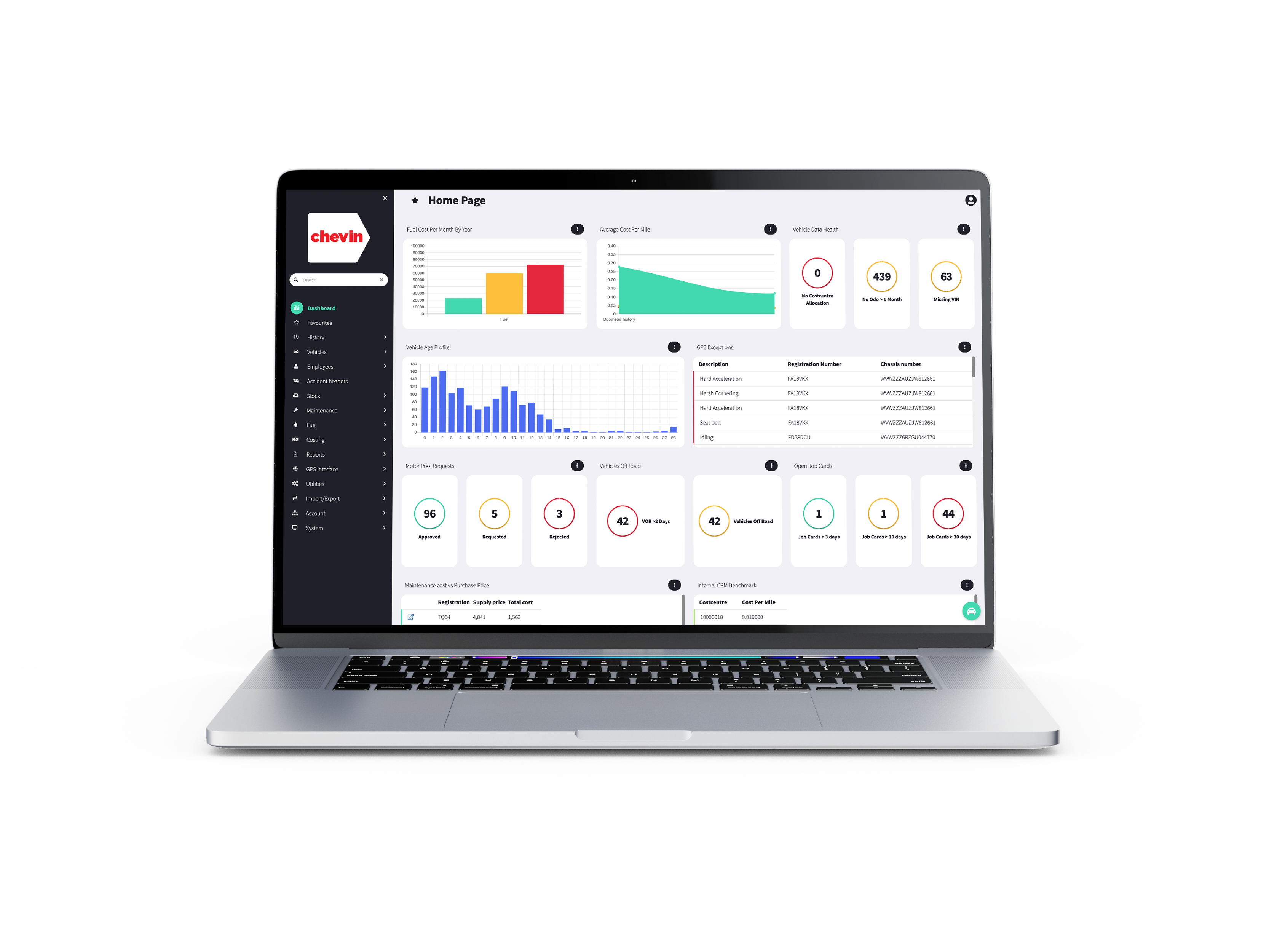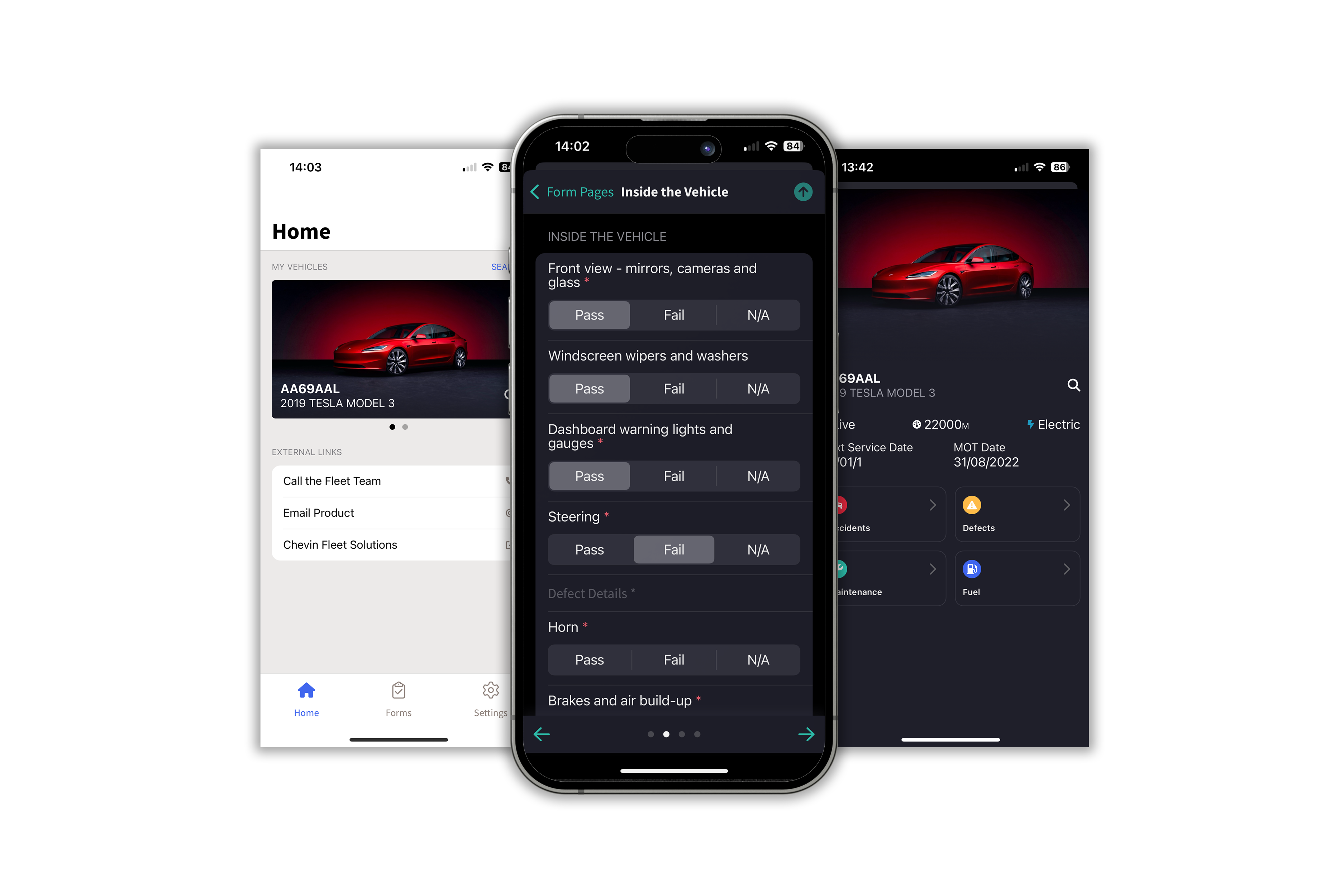Eight months after being sold and a year after appointing a new CEO, Chevin Fleet Solutions says it is focused on developing its people and products to continue delivering for its customers.
Gary Thompson (pictured) joined the business in March 2022 as chief operating officer, before being appointed as Chevin’s new CEO in February, last year.
He replaced Chevin’s founder Ashley Sowerby, who moved to a new role of executive chairman.
Thompson, whose career has included a variety of leadership and owner managed positions, including chief operating officer of a successful global software as a service (SaaS) company, explained that when he initially joined the company it was with a view to support Sowerby from stepping back from the business, after 32 years at the helm, and to identify potential new owners for the business.
A deal to buy Chevin for an undisclosed sum was struck with the software business Volaris Group, part of Constellation Software, in August 2023.
Constellation Software has a portfolio of more than 700 companies, spanning more than 100 different vertical markets, with 250 customers in more than 100 countries.
“They’re a business that provides long-term security for Chevin,” says Thompson. “They don’t sell their businesses; they don't flip them like a PE (private equity) owned firm and Ashley was really passionate to make sure that Chevin was in long-term strategic hands.”
He adds: “They buy market leading vertical market software businesses, and they invest in them to allow them to grow.
“They also operate a decentralised business model in that they allow the leadership teams of those individual businesses to operate autonomously.
“It’s really a fantastic opportunity for collaboration and sharing of best practice with a financially successful business.”
Thompson says that Chevin has already tapped into this resource, helping it to identify things that it can do a bit better.
“Some of the ways in which they set targets in the development area really interesting, in terms of time to value in the things that we’re developing,” he explains.
“That’s informed us to be focused on about delivering today and transforming tomorrow.”
With other Volaris-owned business, such as AssetWorks and Lightbulb Analytics, operating in the fleet management space, does that suggest that these businesses could be combined in the future?
Thompson stresses that is not the plan with Chevin. He says: “Often, Volaris business have complimentary offers, which is great, and other times we’re competing at arm’s length.”
Building on Chevin’s success
Established in 1990, Chevin’s software solutions are now used in more than 180-countries to manage more than one-million vehicles and associated assets.
Since becoming CEO, Thompson has focused on refreshing Chevin’s purpose, vision and mission in the market.
“We want to be the go-to partner for empowering the global fleet industry with insights which support a safe, compliant and sustainable world,” he explains.
“So many fleet operators rely on multiple systems and data points, or spreadsheets to run their business and aggregating that in an intelligent, high value way so that people have actionable insights, was something that we really defined as being our purpose.”

There has also been a focus on developing talent within the business, which has always been core to Chevin’s strategy.
“Only by doing that and having great people who are empowered, can we deliver a great customer experience and the value that comes with it,” says Thompson.
That has included the creation of a new customer success team. Its role, explains Thompson, is making sure that its customers get good value from using its products and that they are aligned with and support their customers’ objectives and challenges.
He continues: “We really encourage our teams to talk and understand a bit more about where the (customer's) business is going. The challenges they’re facing at a macro level, not just at the level of using our product.
“Only by really understanding that can we start to really tune in to how we can add value.”
Thompson says that during the past few months, he has also concentrated on product development to ensure Chevin continues to innovate in the fleet management market.
“That doesn’t mean just building something that’s going to be launched in two, three or five years, it means looking at how our customers use our products today,” he says.
“Which are the areas that drive most value for them, which are the areas that are underutilised and can drive more value, and then how do we innovate in those areas to bring value today.”
He explains: “We’ve really challenged the R&D teams with you’ve got to deliver today and transform for tomorrow. We can’t just be a business that’s building something new for down the line.”
Chevin’s approach is paying dividends as it continues to grow and win new business.
“In the past couple of years, we've recorded strong double-digit growth, and we have very clear plans in place to be able to continue to grow at that sort of level,” says Thompson.
Its core product is its FleetWave platform that allows businesses to gain granular insights into the performance metrics of each vehicle, from fuel consumption to maintenance schedules.
This data-driven approach not only reduces operational costs but also boosts vehicle longevity and reduces unexpected downtimes, says Chevin.
FleetWave Core hosts all the features of FleetWave Lite with additional features such as an advanced maintenance provision and telematics and GPS integration.
FleetWave Lite was launched a couple of years ago, aimed at simplifying the fundamentals of fleet management for less complex fleet operations.
FleetWave Advanced, meanwhile, is for fleets with even more complex needs. It includes all the core features, plus extra ones like workshop and stock/inventory.
Advanced users are also able to configure the software to support specific business needs.
Most recently, Chevin launched a new tool that promises to open up a world of automation and real-time data capture for fleets.

FleetWave SmartForms, which is embedded into its FleetWave fleet management software, allows users to create data capture forms, automate operational processes and notify users in real time.
Data flows bi-directionally between FleetWave and the newly enhanced FleetWave driver app, providing an integrated system for live push notifications and instant actions, while reducing the need for multiple third-party apps, says Chevin.
Key features include: the ability to automate workflows within an operation to send notifications, alerts, or approvals to people instantly; ensure data consistency and drive best practice with end users; analyse data and trend analysis within FleetWave; and tailor responses to meet specific fleet requirements, from media uploads to signature capture.
Thompson explains: “What Fleetwave helps people do is to manage two of the most important assets that a business has, the drivers and the vehicles.
“Anything that touches those two key assets in the organisation, whether it’s maintenance, fines, fuel or telematics, or any of those sorts of things, Fleetwave provides the control tower view that aggregates that data and allows people to make decisions more quickly and more proactively than they otherwise would.”





















Login to comment
Comments
No comments have been made yet.